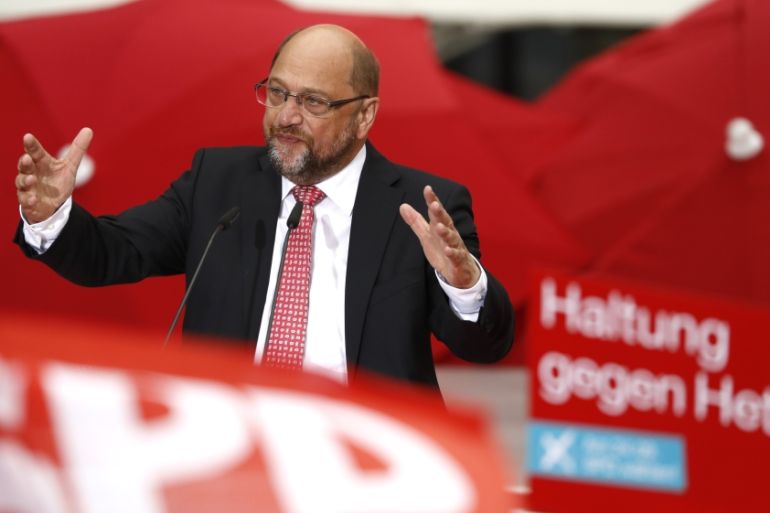German president set to host new coalition talks
CDU/CSU alliance is due to start negotiation with SPD over majority government as president seeks to prevent snap vote.

Germany’s president is set to host a meeting between the leaders of the country’s three major parties, in an attempt to avoid an election rerun by pushing for a new three-way coalition deal.
President Frank-Walter Steinmeier will lead the gathering in the capital Berlin on Thursday at 19:00GMT (8pm local time).
Keep reading
list of 4 items‘Nothing to apologise for’: Merkel defends Russia legacy
The mixed legacy of Angela Merkel
What is next for Germany after Angela Merkel?
Chancellor Angela Merkel of Christian Democratic Union (CDU), Social Democratic Party (SPD) chief Martin Schulz and Horst Seehofer, the head of Christian Social Union (CSU) – CDU’s ally in Bavaria are expected to meet, despite SPD’s initial rejection of renewing partnership with the CDU/CSU alliance.
The development came after Merkel’s negotiations to form a coalition government with the Greens and the pro-business Free Democratic Party (FDP) broke down and the chancellor expressed her willingness to go for a snap election instead of leading a minority government.
President Steinmeier made it clear that he wanted to avoid a new election, stressing that the country’s political leaders needed to return to the negotiating table.
“In the election on September 24, the parties vied to take on responsibility of Germany,” said Steinmeier, who has the power to call a fresh election.
“This responsibility, in accordance with the German constitution, cannot simply be given back to the electorate.”
No majority
In September’s poll, Merkel’s CDU/CSU secured 33 percent of the vote, down about nine percent compared with the previous election in 2013 – failing to form a single-party government.
Merkel’s former partners, the Social Democrats (SPD) have consistently ruled out being part of another so-called grand coalition since scoring just 20.5 percent of the vote in September’s vote.
Schulz wanted to stay in opposition to have better chances of securing the majority of votes in the future.
Merkel has been the chancellor of Germany for the last 12 years.
A government vacuum in Europe’s largest and strongest economy might affect many issues such as the eurozone’s stability and discussed reforms backed by France.